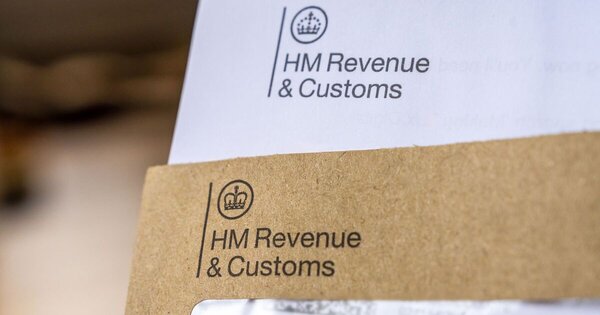Let’s Clear It Up
Tax credits give a helping hand to working people on lower incomes. They’re payments from the government that boost your earnings when you need it most.
Unlike other benefits, tax credits can still be available even when you’re earning a decent wage. The exact amount you’ll get depends on your circumstances and how much you earn.
There are two types: Working Tax Credit for people in work, and Child Tax Credit for those with children. You might qualify for one or both depending on your situation. The different tax credit elements, such as the basic element, 30-hour element, and disabled worker element, impact the amount of tax credits you can receive based on your income levels and eligibility.
How much can you actually earn and still get tax credits?
For the 2024/25 tax year, the basic income threshold for Working Tax Credit is £19,565. This means if you earn less than this, you could get the full amount.
Child Tax Credit has a higher threshold of £25,780 for most families. Many parents are surprised to learn they can earn this much and still get help.
If you’re a single parent, you can earn up to £18,725 and still receive the full amount of tax credits you’re entitled to. For couples with children, your combined income can be up to £25,780 before your tax credits start reducing.
Your tax credits don’t just stop when you hit these limits. They gradually reduce as your income rises above the threshold.
For every £1 you earn over the limit, your tax credits go down by 41p. This means you might still get some help even with a higher income.
However, your universal credit entitlement might differ from these tax credit thresholds. If your universal credit entitlement is lower than your former benefits, you might qualify for transitional protection.

Does your family situation change how much you can earn for child tax credit?
Absolutely! The number of children you have affects your overall entitlement, though the basic income thresholds remain the same.
If you’re disabled or have a disabled child, you might qualify for extra elements of tax credits. This can effectively raise the amount you can earn.
If you receive a migration notice from the Department of Work and Pensions, it is important to claim universal credit promptly. This involves transitioning from tax credits to universal credit and following the necessary steps outlined in the notice.
Working hours matter too. Generally, you need to work at least 16 hours a week to get Working Tax Credit if you’re a single parent or have a disability.
Couples with children usually need to work at least 24 hours between them, with one person working at least 16 hours. If you’re over 60, the rules are a bit different - you might qualify by working just 16 hours a week, regardless of children.
What counts as income when they work out your tax credits if you are self employed?
Your income includes wages from employment, including overtime, bonuses, and tips. It’s based on your gross earnings before tax and National Insurance.
For self-employed people, it’s your profit that counts, not your total earnings or turnover. This can make a big difference to your eligibility.
Some benefits and money from financial assistance programs count as income for tax credits, while others don’t. For example, Carer’s Allowance counts, but Personal Independence Payment doesn’t.
If you have pension income, this counts too. The same goes for rental income from property you own and investment income over £300 per year.
Maintenance payments for children generally don’t count as income. This is good news if you receive child support, as it won’t reduce your entitlement.

What happens if your income changes?
Small changes in your income (up to £2,500) won’t affect your tax credits for the current year. This is known as the “income disregard” and provides some helpful flexibility.
If your income goes up by more than £2,500, your tax credits will be reduced. But this usually happens in the next tax year, not immediately.
When your income drops, it’s worth reporting this right away. You might be entitled to more tax credits, which could help when you need it most.
It is also important to assess additional financial support options if you do not have enough money to cover your living expenses. Assistance from government programs, local councils, or charities can help alleviate financial hardships.
Always tell HMRC about significant changes to your income. If you don’t, you might end up being paid too much and having to pay it back later.
The tax credit system is designed to be flexible with income changes, recognising that many people’s earnings fluctuate throughout the year.
How can you check if you qualify?
The easiest way to check is to use the tax credits calculator on the GOV.UK website. It gives you a quick estimate based on your income and circumstances.
For a definite answer, call the HMRC tax credit helpline. They can look at your specific situation and give personalised advice.
If you're already getting tax credits, your annual review form will help you check if you're still eligible based on your current income. It's worth noting that tax credits are gradually being replaced by Universal Credit in many areas.
Remember to keep all your income documentation handy. This makes it much easier to report your earnings accurately when needed.

Working Tax Credit
Working Tax Credit was a means-tested government payment designed to help working people on low incomes with day-to-day expenses. To be eligible, individuals had to work a certain number of hours a week, either employed or self-employed, and have an income below a certain level. The ‘basic element’ of Working Tax Credit was worth up to £2,435 in 2024-25, the last tax year in which Working Tax Credit was paid.
There were also extra elements that individuals might have been able to claim, depending on their circumstances, such as the ‘30 hour element’, ‘disabled worker element’, and ‘child care element’.
Child Tax Credit
Child Tax Credit was a tax credit designed to help families with children. It was available to individuals who were responsible for a child under 16, or under 20 if the child was still in education or training. The amount of Child Tax Credit received depended on the individual’s income and family circumstances. Child Tax Credit was reduced due to income if household income was above £19,995, with a reduction of 41p for every £1 of income above the threshold.
Universal Credit and Tax Credits
Universal Credit is a means-tested benefit that replaced Working Tax Credit and other benefits. If individuals were claiming tax credits and Universal Credit during the same tax year, HMRC would stop the tax credit claim. The tax credit award for the year would be calculated based on the same principles as before, but the income figures used might be calculated differently. Individuals may be able to get Universal Credit instead of tax credits, and may also be eligible for Pension Credit.

Self-Employed and Tax Credits
Self-employed individuals may be eligible for tax credits, including Working Tax Credit and Child Tax Credit. To qualify, self-employed individuals must have a low income and meet certain conditions, such as working a certain number of hours a week. Self-employed individuals must also report their income and expenses accurately to HMRC to ensure they receive the correct amount of tax credits.
What to do next if you think you qualify
If you think you might be eligible, don't wait to apply. Tax credits can only be backdated for one month, so you could lose out if you delay.
When applying, have details of your income, working hours, benefits, and children ready. This makes the process much quicker and less stressful.
Keep track of any changes to your circumstances. Income changes, new jobs, or changes in your family situation can all affect your entitlement.
Consider getting help with your application if you're unsure. Citizens Advice can offer free guidance on tax credits and help you navigate the system.
For self-employed people, managing tax credits alongside your tax return can be tricky. Pie is the UK's first personal tax app that helps working individuals handle their tax matters simply and efficiently.
Remember, even if your income is higher than the basic thresholds, you might still get some tax credits. It's always worth checking what you're entitled to.

Final Thoughts on Income Limits
Understanding how your income affects your eligibility for tax credits is key to making informed financial decisions. Even small changes in your earnings can impact what you're entitled to, so staying up to date with thresholds and limits is essential.
If you're unsure where you stand, benefits calculators and organisations like the Child Poverty Action Group can provide guidance. And for a more comprehensive view of your overall tax situation, Pie is a powerful solution. It’s designed to simplify tax for everyday earners—helping you track income, stay compliant, and see in real-time how your finances align with benefit thresholds.
Don’t leave money on the table—use the tools available to claim what you’re entitled to with confidence.











